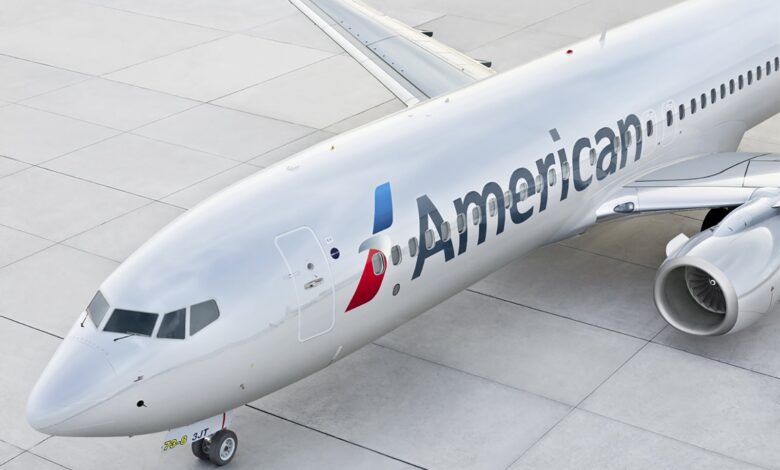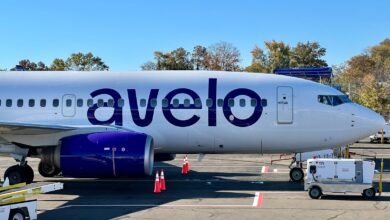Our American Airlines flight delay turned into a nightmare. What are we owed?

Editor’s note: Readers and members of our Facebook Lounge frequently write to us for help when things go wrong with their travel. That’s why The Points Guy has asked Michelle Couch-Friedman to act as our ombudsman and help members of the TPG community out when possible.
If you’ve had a situation where something has gone wrong with your travels or one of your credit cards and you are not getting a response from the company responsible, Michelle can help you contact it and potentially reach a satisfactory resolution. She brings decades of experience advocating for consumers to her work with TPG and has already helped readers get thousands of dollars’ worth of restitution.
Need her help? Write to [email protected] with your situation and, in the cases where she might be of help, we will do our best to funnel your query to her.
Sign up for our daily newsletter
An American Airlines flight delay recently set off a chain of events that plunged Brett Smith into a travel nightmare.
After an extended weekend getaway to the Cayman Islands, Smith and his pregnant wife were looking forward to getting home to the U.S. But a minor two-hour delay somehow ended with American Airlines flying the couple to a third country instead.
That delay and subsequent flight diversion caused the couple to incur over $1,500 in expenses. Now Smith wants American Airlines to pay up – and he hopes TPG can help make that happen.
But what does American Airlines really owe the couple? The answer might surprise you.
Want more airline-specific news? Sign up for TPG’s free biweekly Aviation newsletter.
A flight delay notification
In June, Smith and his wife set off for a short vacation to the Cayman Islands. The trip was meant to be a relaxing getaway before their baby’s arrival. After several days of tropical sun, food and drinks, it was time for the couple to head home.
“American Airlines sent us a notification of a two-hour flight delay,” Smith recalls. “That was annoying but not a giant problem.”
But trouble was on the horizon.
Surprise! You’re in the Bahamas
After the two-hour delay, the couple boarded the plane, and the pilot announced they’d be landing in Florida shortly. That changed during the flight.
“At first, the pilot announced that bad weather was causing us to be diverted to West Palm [Beach] (instead of Miami),” Smith says. “But when we landed, we learned we weren’t even in the United States!”
The American Airlines flight had been diverted to Nassau, in the Bahamas, to refuel. Initially, the crew informed the passengers that the aircraft would be ready to go after refueling. That finished up soon enough — but while the jet was ready to resume flying, the pilot wasn’t.
“After waiting for the refueling to be complete, we thought we would be on our way,” Smith explains. “But then the crew told us the pilot had timed out. He wasn’t going to fly us home after all.”
And with that, Smith says the pilot stepped out of the cockpit and left the plane.
Then things started to get messy. None of the passengers aboard the aircraft was approved for the pandemic-related entry requirements for the Bahamas, including Smith and his wife.
An unplanned overnight stay
When the passengers were finally offloaded, the airport was mostly closed. There were few employees at customs, and there was virtually no American Airlines staff to help.
There we were, stranded in the Bahamas. After hours in customs, it was another hour to collect our bags. Then we stood in line for another hour to receive a hotel and transportation voucher from an American Airlines employee. We looked up the hotel (Breezes), and the reviews said it had mold and was dirty. I didn’t want to take my pregnant, asthmatic wife there.
After reviewing the Breezes website, Smith was certain it wasn’t for them. There, he saw the announcement that the hotel “welcomes groups of spring breakers and graduates” and it listed confirmed dates of those student travelers. The notice went on to advise potential guests to plan their trip “outside of the normal nationwide spring break and graduation season” to avoid such crowds.
A student travelers alert
The date was June 1 and Breezes listed it as one of those dates to skip if you aren’t into a spring break vibe. Smith and his pregnant wife just wanted a few hours of rest and peace and quiet. This description from the hotel sounded like the opposite of what they hoped to experience.
Tired after the long day of travel, and admittedly having not spent a great deal of time researching other options, the couple booked a room at the Atlantis Royal Towers. The last-minute reservation came at a premium cost of $667.
As it turns out, the choice to dodge Breezes likely saved the couple from an additional unpleasant component to their travel nightmare.
“Arriving back at the airport at 6 a.m. like American Airlines instructed, we talked to other passengers,” Smith says. “They all said that Breezes was very moldy and uninhabitable, comparable to a low-budget spring break hotel.”
The missing crew
The frustrated travelers had all reassembled, but the American Airlines crew had not returned.
Smith, his wife and the other passengers stood around without instructions for four hours. At 10 a.m., airport staff directed the group to another terminal where their aircraft was located.
“At 11:30 a.m., the American Airlines crew showed up,” Smith reports. “We boarded the plane and finally took off at 1 p.m.”
Given the events of the past 24 hours, the passengers weren’t fully convinced that the plane would actually land in Miami.
The final, expensive stretch
Within an hour, the waylaid travelers were relieved to arrive at their intended destination. But for Smith and his wife, the ordeal dragged on for another 12 hours.
Because there were no available flights from Miami to their hometown of Austin, Texas, they were instead offered a flight to San Antonio after a seven-hour layover in Miami. From there, they took a $300 Uber ride back to their car in Austin.
Finally, 40 hours after the couple originally intended to get back, they walked through the front door of their home, exhausted by the experience.
Now, who is going to pay?
Smith soon penned a compensation request to American Airlines. When he gathered all the receipts for food, taxis, Ubers, extra days of parking, the hotel, and other incidentals, he was shocked by the costs of the 40-hour delay – over $1,500.
“That didn’t even cover my missed day of work,” Smith laments. “I hoped American Airlines would reimburse us for everything.”
That turned out to be an unrealistic expectation.
What do federal rules say?
Smith was about to find out that, according to American Airlines’ contract of carriage and the federal Department of Transportation, he was owed virtually nothing for the delay.
In the case of an extended delay or cancellation, the DOT says the airline must only do one of two things for its passengers:
- Either put the passenger on the next available flight on its own fleet. This substitution can be hours or even days later. The DOT doesn’t define a required time frame.
- Or, provide a refund to the passenger so that the traveler can find their own transportation onward.
In the United States, no regulations compel an airline to provide compensation for a passenger’s inconvenience, missed events, hotels or food.
When American Airlines declined Smith’s request for compensation and instead sent him a standard apology and an offer of 12,500 bonus miles, Smith was unwilling to accept this “resolution.”
That’s when he sent his request for help to the TPG team, and it soon landed on my desk.
How your travel credit card can protect you
During my many years as a consumer advocate, I’ve received hundreds — maybe even thousands — of pleas for help from passengers who expect airlines to pay up when a delay or cancellation has inconvenienced them. Many, if not most, of these travelers are shocked to discover that airlines will not provide the reimbursement they expect for missed days of work, nonrefundable hotel nights and other expenses.
I knew Smith’s request to American Airlines was likely a lost cause. However, when I read through his entire complaint, I was happy to see one detail that I knew was the bright spot in his awful story.
Smith had not purchased travel insurance for this journey — something that would have likely covered most of the expenses he was requesting from American Airlines. However, the couple had paid for their airline tickets with Smith’s Chase Sapphire Reserve and it provides trip delay protection.
Although they weren’t aware of it, the couple had a quasi-travel insurance policy thanks to the card.
The Chase Sapphire Reserve’s trip delay protection provides up to $500 reimbursement per ticket for reasonable expenses incurred during an airline delay.
Cardholders should keep the following in mind to make sure their delay qualifies for coverage.
- The airline ticket(s) must be paid for with the Chase Sapphire Reserve card.
- Coverage kicks in after a six-hour delay or when an overnight stay is necessary.
- Trip delay protection is secondary to any other travel insurance coverage.
- The policy will cover reasonable expenses such as hotel, food, ground transportation and essential toiletries.
Note: The $500 is not an automatic amount. When you’re budgeting your hotel and meal plan during a delay, make sure to remember the word reasonable in that fourth clause. You should not view the policy as an opportunity to try out the local five-star restaurant or lavish accommodations at the nearest luxury hotel expecting Chase to pick up the full tab.
How to file a trip delay claim
I encouraged Smith to gather his receipts and file a trip delay claim through eclaims/Allianz, the underwriter of the Chase Sapphire Reserve’s travel benefits.
The claim process is straightforward.
- Call the benefits administrator – eClaims — at 888-675-1461 (In the U.S.) or 804-281-5772 (collect, outside of the U.S.) or visit www.eclaimsline.com to open a claim (or check on an existing one).
- Upload all the necessary documents to process your trip delay claim: receipts for all expenses, proof of delay and proof of ticket purchase. The benefits administrator may ask for additional information.
- Wait (most claims are processed within 30 days).
Smith did as I suggested. Typically, these claims can take up to 30 days to complete, but during the pandemic and a summer of travel chaos, that processing time has been longer.
After a few weeks without an update, I sent a nudge to our helpful executive contact at Allianz. I wanted to ensure that Smith had submitted all the necessary documentation to file his claim.
Shortly after came the good news from Allianz: The trip delay coverage provided by Smith’s Chase Sapphire Reserve card would cover a significant chunk of the expenses the couple incurred.
Hi Michelle,
I’m sorry for any inconvenience Mr. Smith may have experienced with his claim.
I checked with our Claims team, and they have approved Mr. Smith’s claim in the amount of $860.01. He should receive his payment shortly.
We’re glad we could provide this coverage for Mr. Smith and wish him well in his future travels.
(Allianz/insurance underwriter/Chase Sapphire travel insurance coverage)
American Airlines’ gesture of goodwill
Although Smith was pleased with the approval of his credit card’s trip delay claim, it did not make him completely whole. Not all of the expenses he had incurred when American Airlines delayed and diverted their flight home had been reimbursed.
Even the best travel insurance policy won’t typically cover a nearly $700 per night luxury hotel when alternative accommodations are available (or a $300 Uber, for that matter).
The hotel in the Bahamas had been quite pricey, but Smith believed it to be the right choice given his wife’s pregnancy and asthma. Smith also says he had received verbal approval from an American Airlines employee to go to that alternative hotel.
In an email to Smith, before Smith had reached out to TPG, an airline representative seemed to imply that if the couple submitted all their additional expenses, they might be reimbursed. But then he had heard nothing further from American Airlines.
So before I closed this case, I thought it was worth a shot to inform our American Airlines executive contact of Smith’s successful trip delay claim through his Chase card (and its value) and to find out if the airline intended to provide any further goodwill gesture to the couple. After all, this travel nightmare had still cost them more than $800 over the reimbursement amount agreed to by Allianz.
Soon, American Airlines had more good news for Smith and his wife. In the end, the airline provided a goodwill gesture (cash reimbursement) that filled the gap that the trip delay policy didn’t cover. American Airlines also sent the couple $800 in future travel credits to make up for their terrible experience.
Smith and his wife are delighted with the outcome. And now they can put this travel nightmare in the past and look forward to their next adventure — a new baby.
Minimize the financial hit
Of course, flight delays and cancellations are always a possibility when we travel. But many passengers don’t plan for these situations, instead hoping for the best as they set off on their journeys. This is a mistake.
It’s easy to mitigate the financial repercussions of a flight delay or cancellation if you do just a little preplanning. Here are some things to keep in mind before your next trip.
Know your passenger rights
In the United States, airline passengers do not have an abundance of protections when operations go awry.
Compared to Europe, Canada and Israel, our passenger rights are abysmal. The first step in protecting yourself from a monetary loss during a flight delay or cancellation is making sure you understand your basic rights. You should acquaint yourself with the Department of Transportation’s stance. Hint: You are owed just about zilch.
Since the DOT is not going to hold the airline responsible for any expenses incurred during a delay or cancellation, you need to plan accordingly to protect yourself. Also remember: Under the EC 261 regulation, your rights are different if you’re on a European airline (though that may be changing soon). And in 2019, Canada added similar passenger protections for a variety of flight mishaps.
Use a credit card that provides trip delay and cancellation coverage
Not all credit cards are created equal when it comes to travel protections. It’s critical to understand all of the membership benefits of your specific cards so that you ensure you’re protecting yourself in the best possible way during your travels.
The same week that Smith contacted [email protected], Melissa Karren also submitted a request for help with an equally unpleasant travel nightmare. Her story has a different ending, however, because she used her Citi / AAdvantage® Platinum Select® World Elite Mastercard® to book her flights — and that card dropped its travel protections back in 2019.
If you don’t want to buy a separate trip insurance policy, make certain you’re paying for your flights with a credit card that will provide flight delay and cancellation coverage.
Purchase travel insurance
Regrettably, travelers often assume that trip insurance is only appropriate for costly international adventures. Because of the limitations of passenger rights in the United States, however, travelers should consider trip insurance for any journey that involves nonrefundable accommodations, car rentals or activities.
If your flight is delayed or canceled, the airline probably isn’t going to reimburse you for any losses. But a comprehensive travel insurance policy might provide you with the protection you need.
Visit a site such as InsureMyTrip, where you can compare and contrast a variety of insurance policies. After purchasing a policy, you usually have 10-14 days to thoroughly review it before it becomes nonrefundable. These policies are quite detailed, but don’t be deterred by their length. Read the entire document during that review period. If you determine that it does not provide the coverage you need, you can cancel and purchase one that does.
Use a professional travel advisor
When hundreds of people are storming the airline’s customer service counter after a cancellation or extended delay, a professional travel advisor can be your best friend. They are sure to have special contacts to help reroute you and find you local accommodations if necessary. You can skip that line, take a seat and let your travel agent do what they do best. Use a site like TravelSense to find a recommended, professional travel advisor — because just like all credit cards aren’t created equal, neither are all travel agents, and some can help you more than others.
Bottom line
Travel delays and cancellations can quickly turn into unexpected financial disasters for unprepared passengers. Don’t let that happen to you. As Smith’s experience shows, you can easily protect yourself from surprise expenses by using a credit card that provides you with the travel protection you need.
Get to know your card’s membership benefits, read the guide your issuer provides and determine if its coverage suits your needs. You may discover that you, too, have coverage you didn’t know you had. Smith almost lost over $1,500 because he wasn’t aware of the travel delay perks of the Chase Sapphire Reserve card. But that all changed when he contacted TPG — and he couldn’t be happier with the outcome.
Remember, If you have a problem with an airline, hotel, cruise line, car rental agency or credit card company that you can’t fix on your own, send me an email via [email protected] and I will be happy to investigate.
Happy travels!




